International Waste Pickers’ Day is celebrated on March 1 in memory of the massacre in Colombia in which 11 workers were brutally killed at the Universidad Libre de Barranquilla (University of Barranquilla). For the past 21 years since this tragic event, waste pickers/recyclers have continued fighting for recognition of their work.
“There are no borders for those who fight,” is the slogan that symbolizes the struggle of the more than 15 million waste pickers,catadores, recicladores, pepenadores, churequeros, cartoneros, zabaleen, gancheros, buzos, barequeros, guajeros, minadores, thawis, cirujas, clasificadores, buceadores, recolectores who make a living from recycling in the world. It is with this slogan and the organization of waste pickers as the driving force that we celebrate the Global Waste Pickers’ Day. Read more about Global Waste Pickers’ Day and past actions.
To celebrate Global Waste Pickers’ Day, we have compiled highlights from Struggles and Victories, the Global Alliance of Waste Pickers’ newsletter. To all waste pickers and allies around the world, happy March 1st!
March 2013
In India, KKPKP waste pickers’ union held a 6 day sit-in to protest the inhumane treatment of over 400 waste workers by BVG Kshitij, the company contracted by the Pimpri Chinchwad Municipal Corporation.
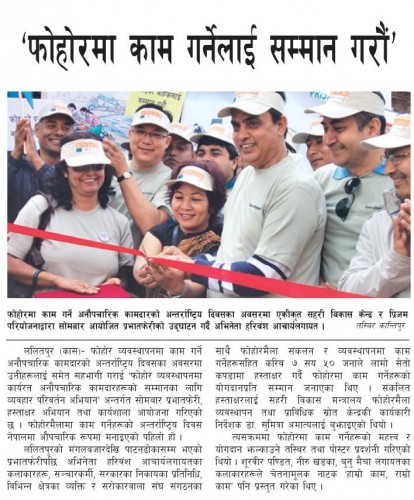
Nepal waste workers campaign for recognition and respect – newspaper clipping. Photo credit: Srijana, Practical Action.
The PRISM project led a Behavior Change Campaign with 750 participants with the objective of garnering respect and recognizing waste worker’s contributions in the solid waste management sector in Nepal.
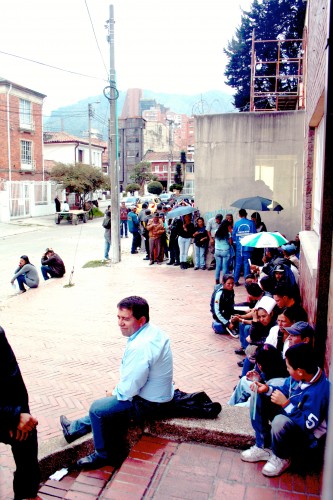
After going through security protocols, each received a PIN to claim their payment in any teller machine. Once they introduced their PIN in the teller machine, they received their payment. People burst into applause, jubilant shouts and even tears. “No more speeches! No more announcements!”—They shouted. Photo credit: Federico Parra.
After over 20 years of struggle for inclusion, the municipal government issued the organized waste pickers of Bogotá their first payment for the collection and transportation of recyclable materials. It was the first time they were paid as public service providers.
April 2013
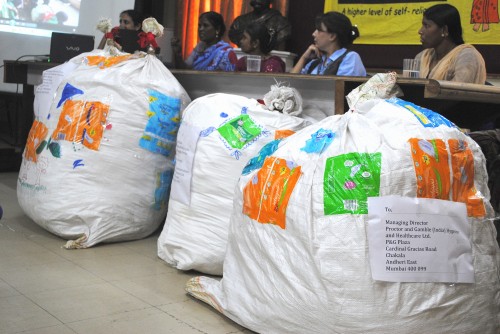
Bags full of used sanitary napkins addressed to companies that manufacture the product. Photo credit: SWaCH.
In India, SWaCH cooperative collected used sanitary napkins and sent them in boxes to manufacturers’ corporate offices as a gift on International Women’s Day, to make them experience firsthand what waste pickers undergo while handling such waste.
Nohra Padilla, informal recycler and leader with the Association of Recyclers of Bogotá and the National Association of Recyclers in Colombia, won the Goldman Environmental Prize for her role in revolutionizing waste management in Colombia.
In India, Chintan and Safai Sena waste pickers’ association celebrated Earth Day in partnership with the Indian Railways at the New Delhi Railway Station, spreading awareness about waste pickers’ role in recycling.
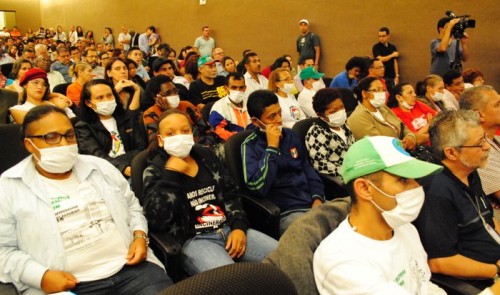
Waste pickers protest at a meeting about São Bernardo, São Paulo’s installation of an incinerator. Credit: MNCR.
In São Bernardo do Campo, Brazil, waste pickers attended a public debate about waste to energy between the municipal government and the Anti-Incineration Coalition. In a symbolic act of protest, a group of 30 waste pickers wore surgical masks.
May 2013
In Brazil, the Waste and Gender Pilot Project began. This partership between Red Lacre, MNCR, WIEGO, NEPEM, and INSEA brought several workshops tis year, exploring themes for a future waste pickers’ program about gender for Latin America.
In recognition of International Labour Day, or May Day, AIKMM waste pickers’ union hosted a program to promote solidarity amongst the waste collectors in northeast Delhi.
June 2013
Waste pickers of Red Nica and Red Lacre protested displacement as a result of the privatization and waste-to-energy plans at La Chureca landfill in Nicaragua.
In South Africa, SAWPA held its national meeting, with eighty landfill coordinators from across the country attending.
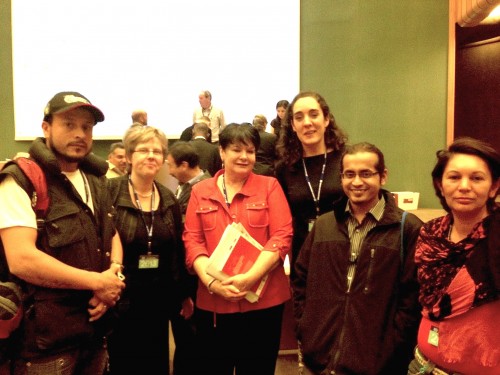
The waste pickers delegation with Sharan Burrow, general secretary of the International Trade Union Confederation (ITUC). Photo: Justina Pena-Pan.
Waste picker representatives from Brazil, Colombia and India were part of the WIEGO delegation at the International Labour Conference in Geneva to bring attention to waste picking and recycling as a key sector for green jobs and sustainable development.
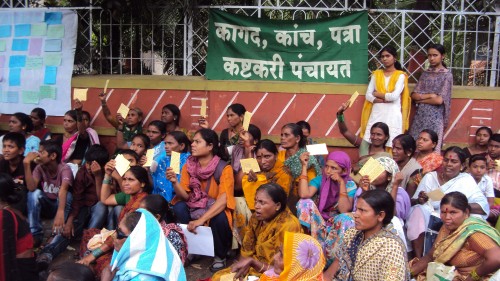
Waste pickers and allies rally for the inclusion of waste pickers’ children in the “unclean” professions scholarship.
The children of waste pickers in India became eligible for a government scholarship program after intense pressure from waste pickers, activists and union members who for years have been lobbying high level officials as well as mobilizing locally.
July 2013
The Federación de Cartoneros y Recicladores of Argentina marched to municipal government offices to protest its lack of regard for inclusive policies.
UCRUS waste pickers’ union of Uruguay marched with horse-drawn carts against a bill that would privatize recyclables and bar them from working in certain neighborhoods.
Waste pickers of the Mao landfill, in the Dominican Republic, hosted their first assembly.
The WIEGO/FIWON organizing project in Nigeria saw progress in its seven target cities, with regular meetings and workshops with waste pickers that focus on organizing and engaging government agencies and the public.
August 2013
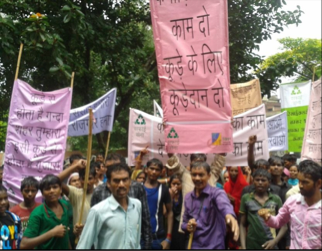
Safai Sena protesting the exploitation and extortion of waste pickers by private contractors. (Photo: Safai Sena)
In Delhi, India, over 250 waste recyclers of Safai Sena marched 12 kilometers in heavy rains against the illegal collection of money by private contractors and exploitation of waste pickers.
The Latin American Waste Pickers’ Network held a week meetings and activities in Chile and showed solidarity with the waste pickers of Los Molles dumpsite.
September 2013
Costa Rican waste pickers hosted their First Waste Pickers Conference, in the city of San Jose, with more than 100 recicladores from around the country participating.
Waste pickers’ associations from seven cities in Bolivia participated in their second national conference, and marched to demand a law that recognizes them as workers and gives them the right to social security benefits.
In the Philippines, the last of three regional workshops for waste pickers was held in Luzon. Unity statements were drafted at all the workshops.
In Rio de Janeiro state, 246 waste pickers of the Gericinó dumpsite blocked the entrance to the dumpsite, demanding benefits and compensation before its closure.
In Argentina, the Movement of Excluded Workers (MTE) and the Federation of Recyclers’ Cooperatives (CTEP) mobilized to demand better work conditions and wages and better prices for recyclables.
October 2013
The organized waste pickers of the Dominican Republic launched a National Movement.
In India, AIKMM waste pickers’ union held its National Green Assembly, demanding real inclusion of waste pickers, rather than policies that displace workers and threaten livelihoods.
The 4th National Conference on the Environment in Brazil united 1,200 delegates to discuss the implementation of Brazil’s National Waste Policy. MNCR had a strong presence throughout the process.
November 2013
November 8th was the Global Day of Action Against Incineration with over 25 actions in 14 countries that protested incineration and promoted zero waste and social inclusion.
In Brazil, the MNCR organized a week of solidarity with the workers of the Uruguaiana dumpsite, and was able to convince the mayor to agree to integrate the waste pickers and end a contract for waste incineration.
Waste pickers came together in the city of Maracaibo, in the state of Zulia, Venezuela, for their 3rd National Conference.
December 2013
In Brazil, women waste pickers with the MNCR held their 4th National Assembly and voted on their demands and proposals.
3,000 waste pickers from Brazil and 14 countries participated in Expocatadores.
Gustavo Petro was ousted from his post as mayor of Bogotá by the Inspector General. Petro was supportive of waste pickers’ inclusion and had been instrumental in implementing the city’s Constitution, which favored waste pickers’ formal integration into waste management. Tens of thousands of citizens protested in the streets.
January 2014
In India, Swach cooperative announced it would stop working with the Pune Municipal government after it consistently defaulted on payments since the contract began in 2008. Swach continues to perform its door-to-door collection service independently.
February 2014
A coalition of organizations have been fighting two legislations that could allow waste incineration in Belo Horizonte.
In Ecuador, an agreement that aims to include 20,000 waste pickers and their families through programs and funding, was signed by government agencies and the Red Nacional de Recicladores de Ecuador (RENAREC).
Women’s International Center awarded Brazilian waste picker leader Maria Monica da Silva the Living Legacy Prize for her work promoting environmental justice.
Tweet


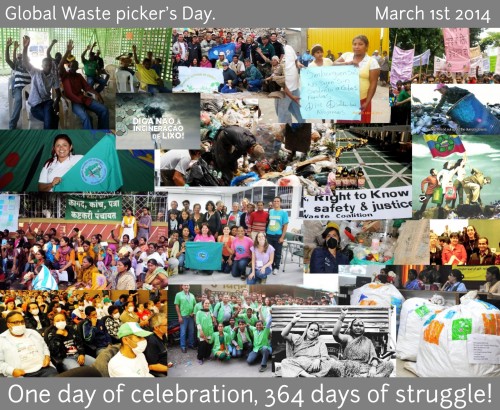
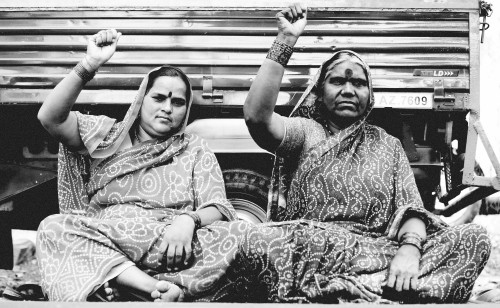
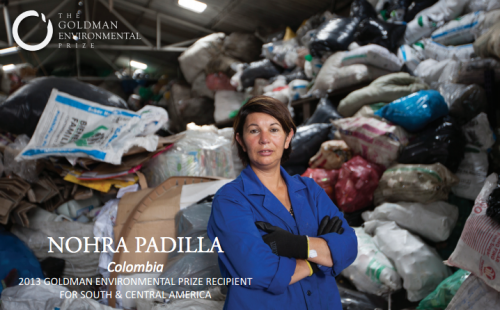
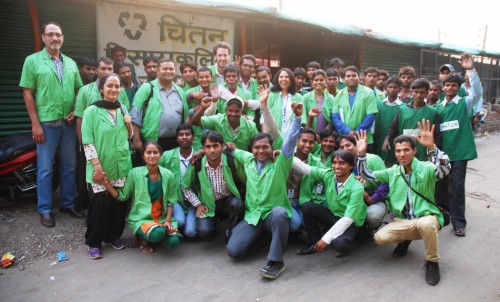
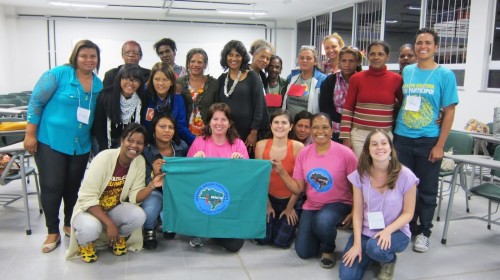
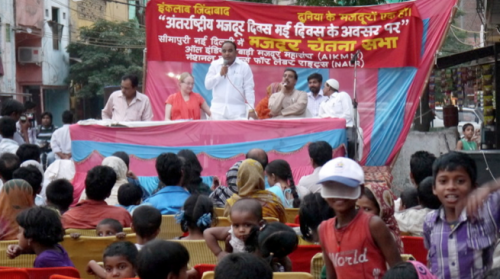
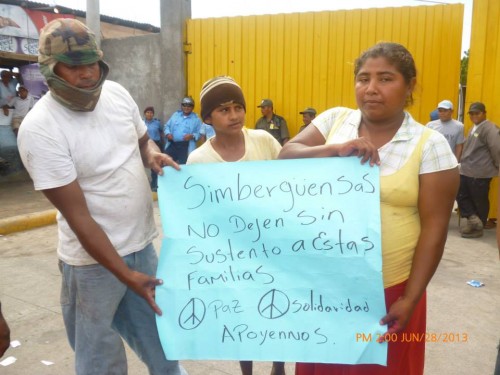
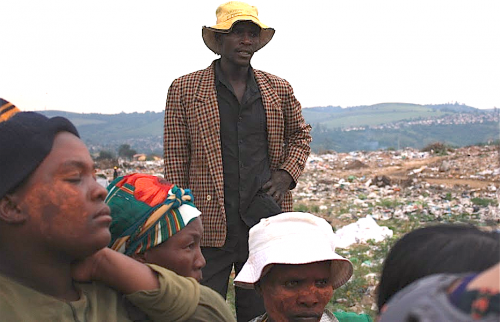
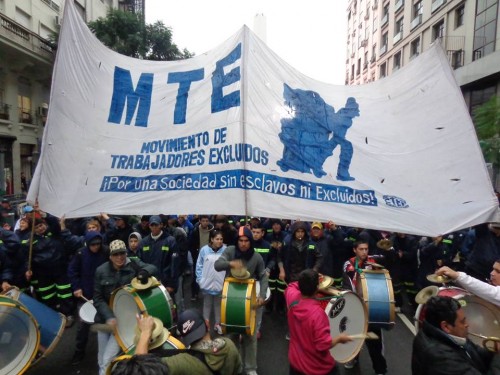
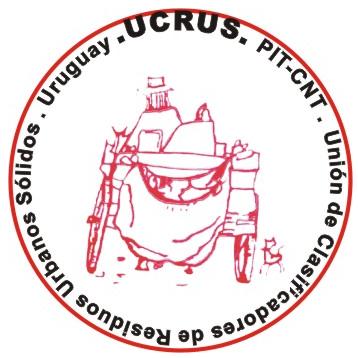
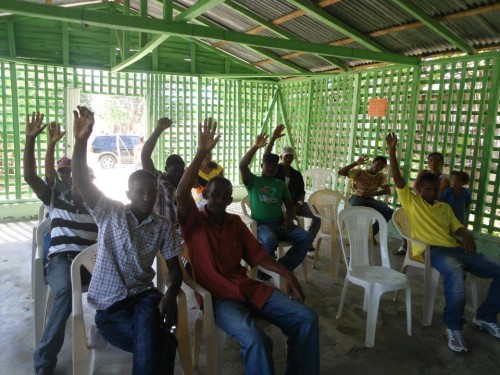
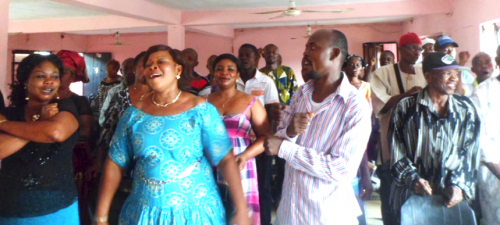
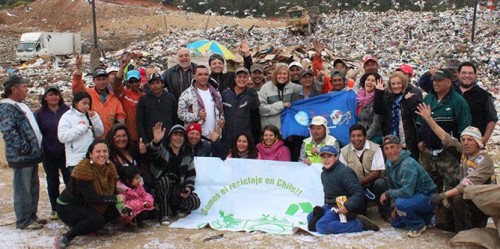
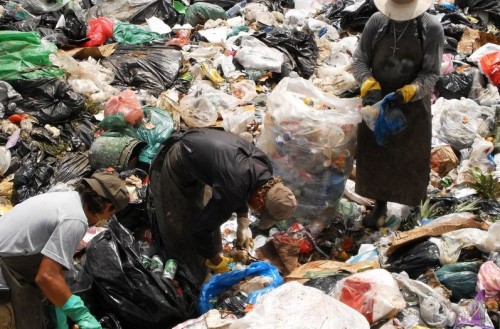
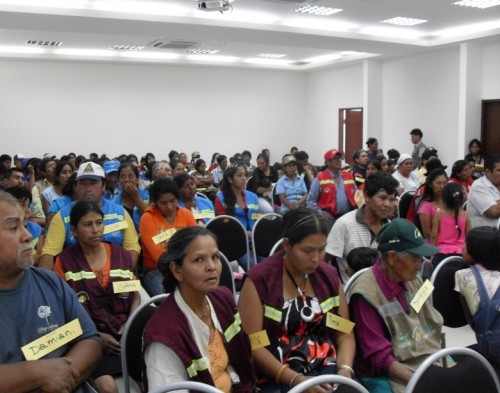
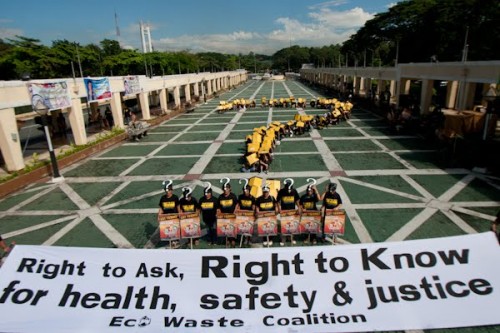
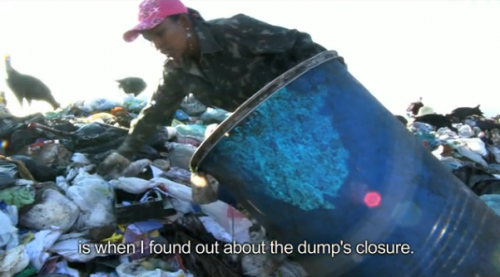
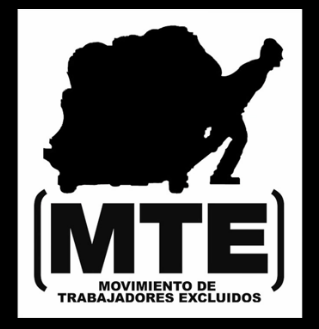

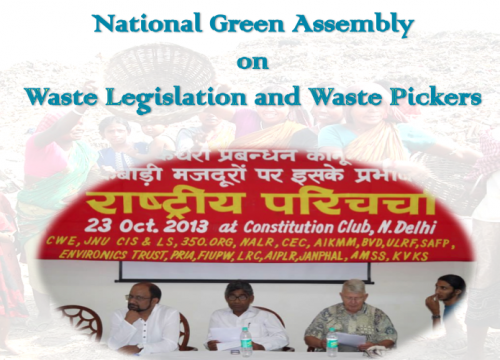
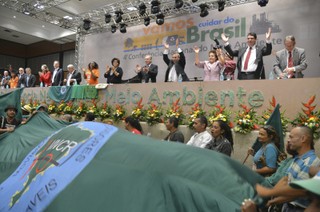

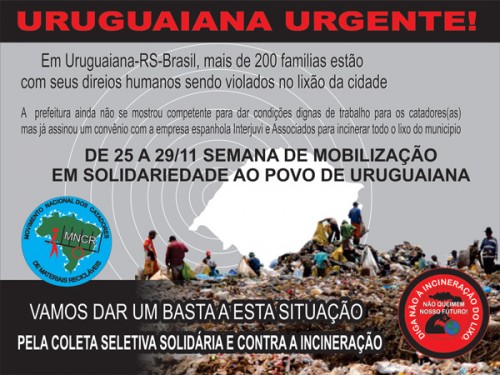
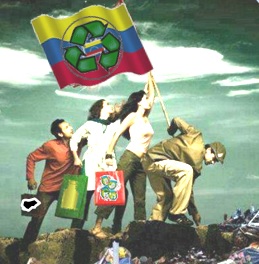
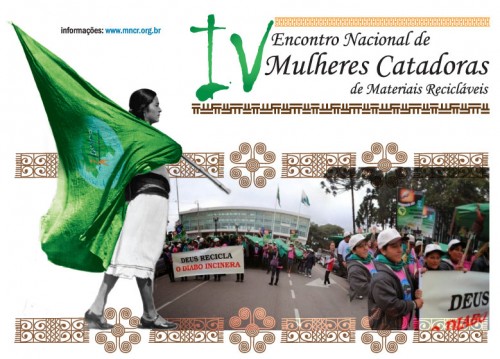

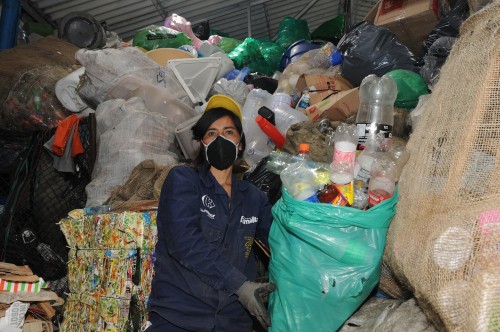

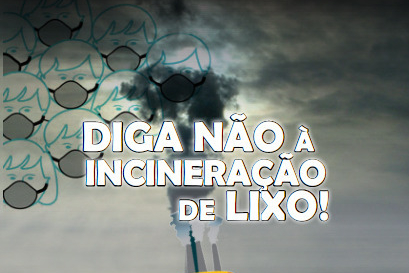
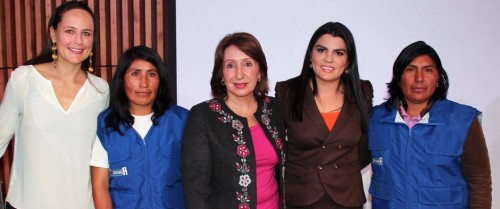
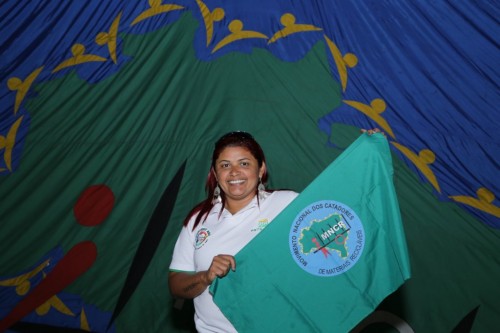
[…] Global Waste Pickers’ Day: One day of celebration, 364 days of struggle! Global Waste Pickers’ Day: The Plea to Formal Businesses & Government for Support Global Recycler’s Day on 1 March 2012 Growing Importance of Informal Recycling with Growing Concerns of Climate Change « The Dennis Hurley Centre – A Model for Inclusive Development […]
Pingback by Durban Informal Recyclers Celebrate International Waste Pickers’ Day | Asiye EtafuleniAsiye Etafuleni — March 6, 2014 @ 8:42 am